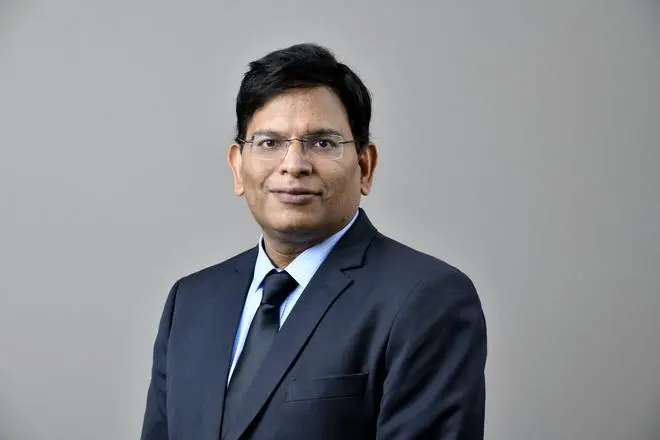
Vikrant Narang, Deputy CEO, Ambit Finvest
Ambit Finvest was recently in news for the acquisition of SMECorner, a fintech lender. Sanjay Agarwal, CEO and Vikrant Narang, Deputy CEO, Ambit Finvest lay down what’s ahead for the company. Edited excerpts:
From having shielded rumours of your NBFC business getting rundown to now acquiring a fintech lender, business seems to have turned around well...
Agarwal: The acquisition of FinMax, which was backed by me earlier, has changed the DNA of Ambit Finvest. Ambit Finvest was largely set up to cater to structured finance. Later, we shifted into value-oriented businesses, and now we are catering to mass markets. And then we raise the capital, which saw Adar Poonawalla take a 20 per cent stake in the company. Now, we are supporting the business with the technology and have acquired SMECorner, because it would be helpful in distributing the kinds of loans which we are doing.
How would your book change with the acquisition?
Agarwal: Current book size is around ₹1,800 crore; the book may not increase due to the acquisition, because we are just getting around ₹200 crore of book. But in one shot we are getting around 300 employees, a technology which has been developed over four years, a lot of B2B partnerships and, particularly, entry into the FinTech space. The books will be merged by March. We will continue to remain very aggressive on the technology development, and will acquire business using technology.
What are the products you focus on?
Agarwal: One is mortgages, backed by collaterals, which is our mainstream business. Then we have unsecured business, which is business installment loans typically given to better-organised SMEs, and we have a used commercial vehicle finance segment, which is around 10 per cent of our total book. Mortgage business requires a lot of branch network.
Narang: Mortgages is basically financing MSMEs or very small businesses, and we take only three types of collateral — self-occupied commercial property or residential property or industry property. The portfolio would be sub 50 per cent loan to value at this point, and average ticket size about ₹14-15 lakh per LAP product.

What would your customer pool be like?
Agarwal: Mortgage is generally for people who are relatively now; may be 1-3 years into the business and want to grow their businesses. In unsecured business, we go by proven track record. We lend only to customers who have good credit history, but are relatively new to banking. Unsecured space is slightly risky, but it is highly rewarding and a scalable business. You can transform this business on technology and, hence, we are targeting customer largely in metros and urban markets. The smaller mortgage business is being targeted in Tier 2/3 markets. For vehicle business we are financing drivers — those who want to become the owner of used vehicle.
Geographically, how well spread is the business?
Agarwal: We covered DMIC (Delhi-Mumbai Industrial Corridor) first, and now from Bombay to Bangalore. The entire ecosystem is being developed around these States. We are choosing carefully that our branches should be within the 200 kilometers around the highway. All SMEs will get benefited from this ecosystem, and our logistic business will fit into this entire thing.
Would you look at tapping the capital market?
Narang: If you are an ₹8,000-10,000-crore business, then potentially you are ready for capital markets. But as a natural progression to that event, we would need one private capital round. We should close our book at ₹2,000-2,300 crore by March 2023. In the next 2-3 years we want to touch closer to ₹8,000-10,000 crore, because we have been growing at 70-75 per cent CAGR over 3-4 years. Our debt: equity is just nearing about 2x today. We have enough fuel in the tank to grow.
Published on January 29, 2023

Comments
Comments have to be in English, and in full sentences. They cannot be abusive or personal. Please abide by our community guidelines for posting your comments.
We have migrated to a new commenting platform. If you are already a registered user of TheHindu Businessline and logged in, you may continue to engage with our articles. If you do not have an account please register and login to post comments. Users can access their older comments by logging into their accounts on Vuukle.